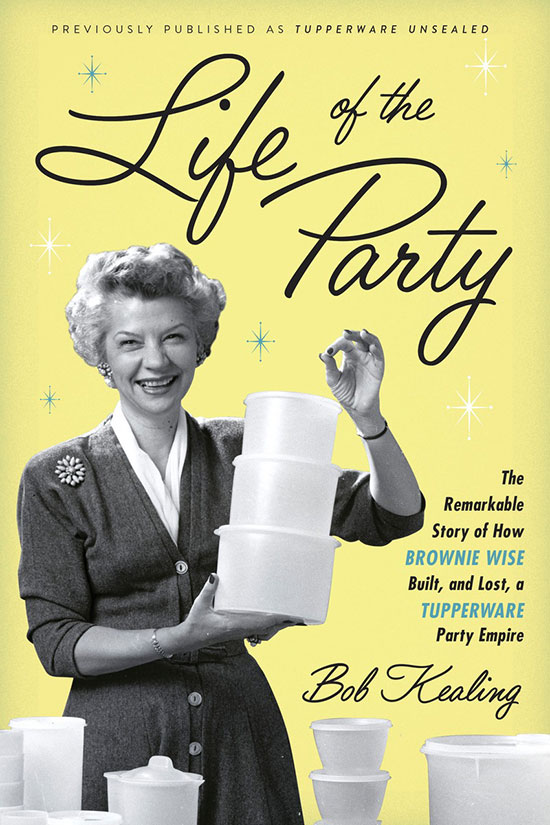Tupperware has most likely touched your life—or at least your leftovers.
The ubiquitous pastel plastic bowls with their snapping, translucent lids are about as American as apple pie—and as Southern as peach cobbler. Now, the nearly forgotten Florida woman behind their early success, Brownie Wise, is finally getting her fair shake.
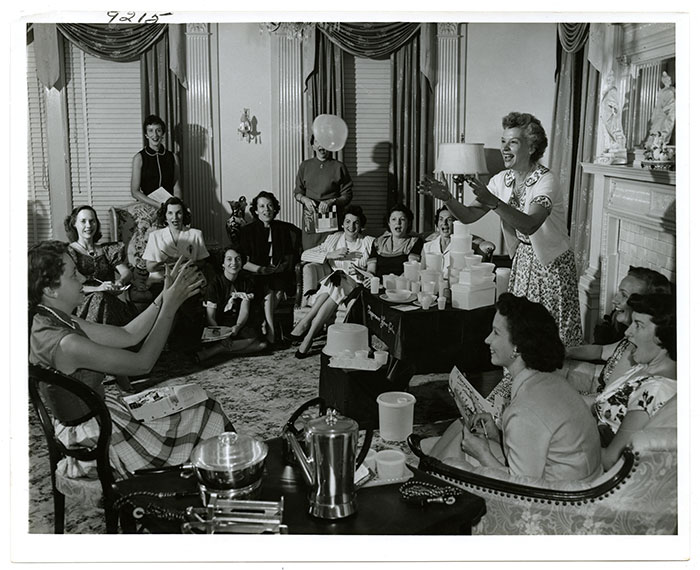
Photo: Brownie Wise Papers, Archives Center, National Museum of American History, Smithsonian Institution
A Tupperware Party in the 1950s.
In the recently released book, Life of the Party, Orlando-based journalist and author Bob Kealing shares how Wise took Tupperware to new heights in the 1950s by doing what Southerners do best—inviting friends over, whipping up some snacks, and turning the everyday into an event. With post-war optimism and a legion of plastics-hawking housewives, Wise shattered national sales records with her “Tupperware Parties,” hired a diverse group of employees, and became one of the few female business leaders of her time.
But an abrupt firing meant Wise almost disappeared, like so many lost Tupperware lids. Kealing shares why it’s about time we brought Brownie’s story back.
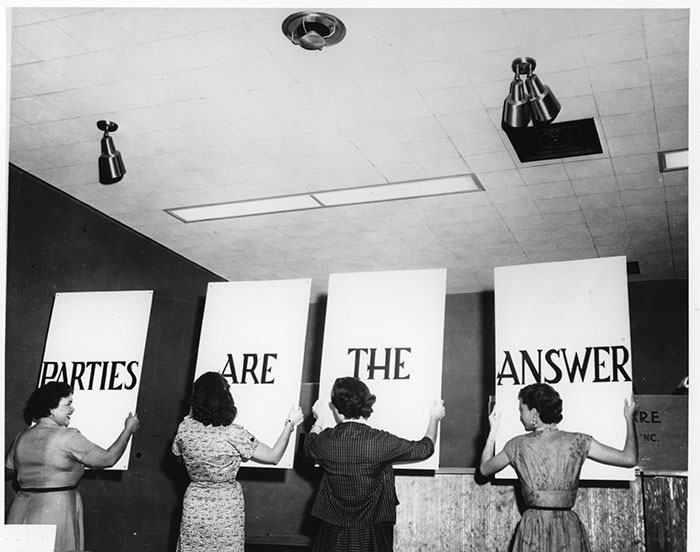
Photo: Brownie Wise Papers, Archives Center, National Museum of American History, Smithsonian Institution
A motto for Tupperware salespeople in the 1950s.
Why should readers want to know about a Tupperware salesperson?
“Brownie Wise is worthy of having her legacy celebrated. She was a pistol. She was the first mad woman in an era of mad men. Here she was, a divorced, single mom in the early ‘50s and she was the sales manager of a major national sales company in the Deep South. She didn’t have a lot of contemporaries.”
What inspired her?
“She had good old-fashioned gumption and she attributed that to her grandmother. Brownie came from a line of women who made it on their own. In the late 1940s, Brownie kept hearing that management was no place for a woman. She simply thought, Yeah, it is. It never occurred to her that being a woman should be any obstacle to rising through the ranks of business.”
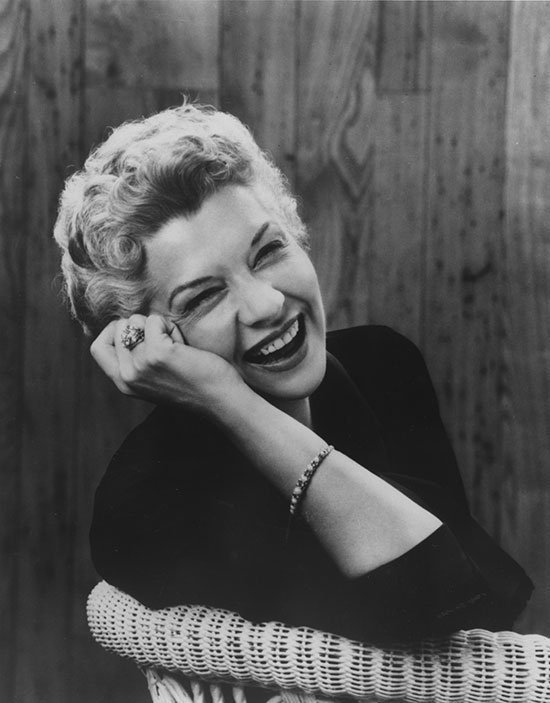
Photo: Brownie Wise Papers, Archives Center, National Museum of American History, Smithsonian Institution
Brownie Wise.
What was her big innovation?
“Before she started, Tupperware was gathering dust on department store shelves. She had the vision to see that the best way to sell this product was through a home party method. So she took the soft-sell to new heights. And through the party method, she took women to new heights.”
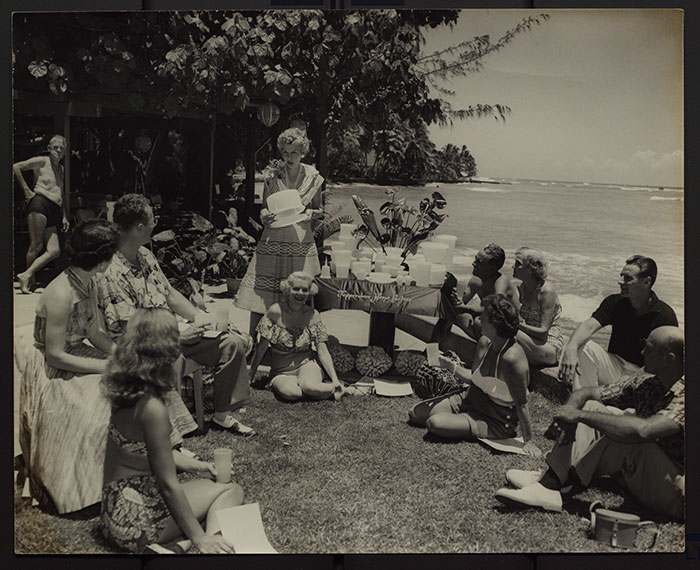
Photo: Brownie Wise Papers, Archives Center, National Museum of American History, Smithsonian Institution
Wise giving a Tupperware party in Hawaii, 1953.
How was Wise perceived by other Southerners?
“She came from suburban Detroit, but quickly adapted to the South. She loved it. She always had that Southern way about her and held some progressive ideas. With her at the helm, the company accepted African-American dealers and managers in the 1950s. She was a leader, but she wasn’t brassy or bossy when she didn’t have to be.”
Why did her legacy shift? What happened with her boss?
“Earl Tupper put her out there as the face of Tupperware. His PR people emphasized that she was a great story—the single mom, a ‘Sunshine Cinderella’ down in Florida, running this company. She started getting press—like the cover of Business Week, and slowly it seemed like she got enamored with the publicity. He thought it got to be more about Brownie than the company and he fired her. But today, the company is again embracing her legacy and spirit. Tupperware recently donated $200,000 for a public park to be established in her honor [in Osceola County, Florida].”
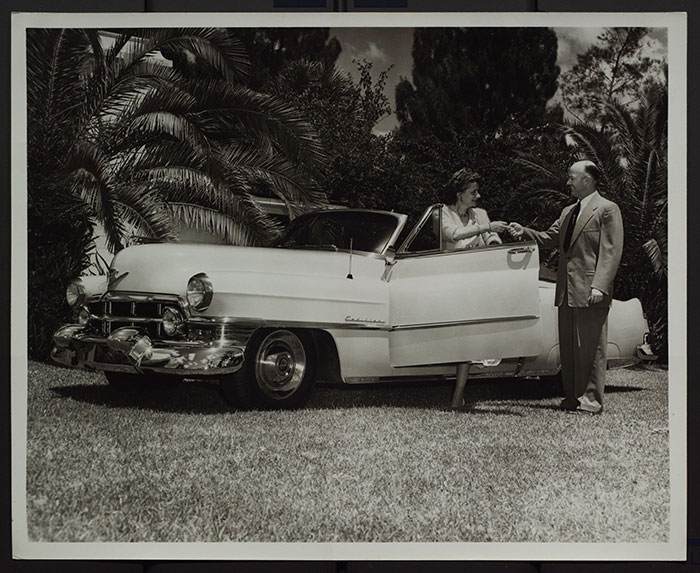
Photo: Brownie Wise Papers, Archives Center, National Museum of American History, Smithsonian Institution
Earl Tupper handing Wise the keys to a Cadillac in Orlando, 1952.
Another Southerner, Sandra Bullock, is slated to play Brownie in an upcoming film. What makes Brownie film-worthy?
“Brownie blazed the trail before Mary Kay, Martha Stewart, and Oprah. Before Sheryl Sandberg was leaning in, there was Brownie. She predates all of these women entrepreneurs and her product is so ubiquitous. Everyone has Tupperware.”


